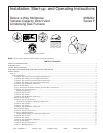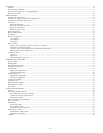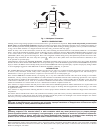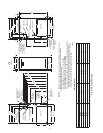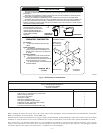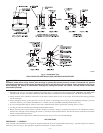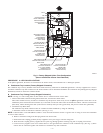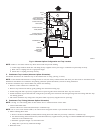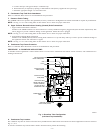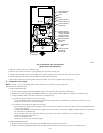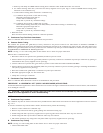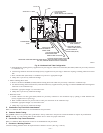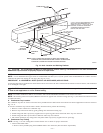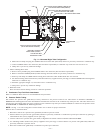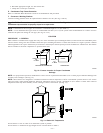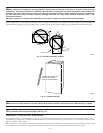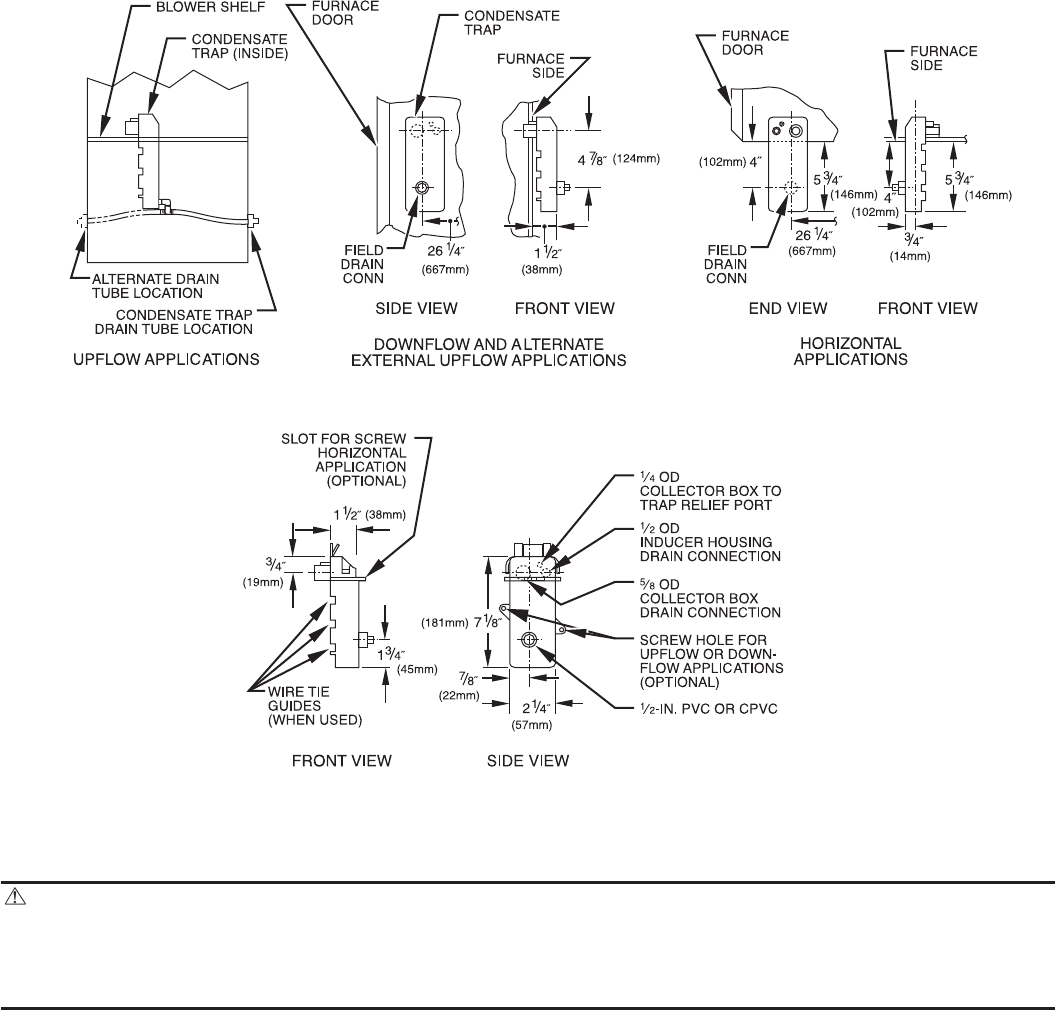
ELECTROSTATIC DISCHARGE (ESD) PRECAUTION PROCEDURE
CAUTION: Electrostatic discharge can affect electronic components. Follow the Electronic Discharge Precautions
Procedure listed below during furnace and servicing to protect the furnace electronic control. Precautions will prevent
electrostatic discharges from personnel and hand tools which are held during the procedure. These precautions will help to
avoid exposing the control to electrostatic discharge by putting the furnace, the control, and the person at the same
electrostatic potential.
1. Disconnect all power to the furnace. Multiple disconnects may be required. DO NOT TOUCH THE CONTROL OR ANY WIRE
CONNECTED TO THE CONTROL PRIOR TO DISCHARGING YOUR BODY’S ELECTROSTATIC CHARGE TO GROUND.
2. Firmly touch the clean, unpainted, metal surface of the furnace chassis which is close to the control. Tools held in hand during grounding
will be discharged.
3. After touching the chassis you may proceed to service the control or connecting wires as long as you do nothing that recharges your body
with static electricity (for example; DO NOT move or shuffle your feet, DO NOT touch ungrounded objects, etc.).
4. If you touch ungrounded objects, firmly touch a clean, unpainted metal surface again before touching control or wires.
5. Use this procedure for installed and uninstalled (ungrounded) furnaces.
6. Before removing a new control from its container, discharge your body’s charge to ground. If the control is to be installed in a furnace,
follow items 1 through 4 before bringing the control or yourself in contact with the furnace. Put all used and new controls into containers
before touching ungrounded objects.
7. An ESD service kit (available from commercial sources) may also be used to prevent ESD damage.
APPLICATIONS
PROCEDURE 1—GENERAL
Some assembly and modifications are required for furnaces installed in any of the 4 applications shown in Fig. 1. All drain and pressure tubes are
connected as shown in Fig. 5. See appropriate application instructions for these procedures.
Fig. 4—Condensate Trap
A93026
—6—



